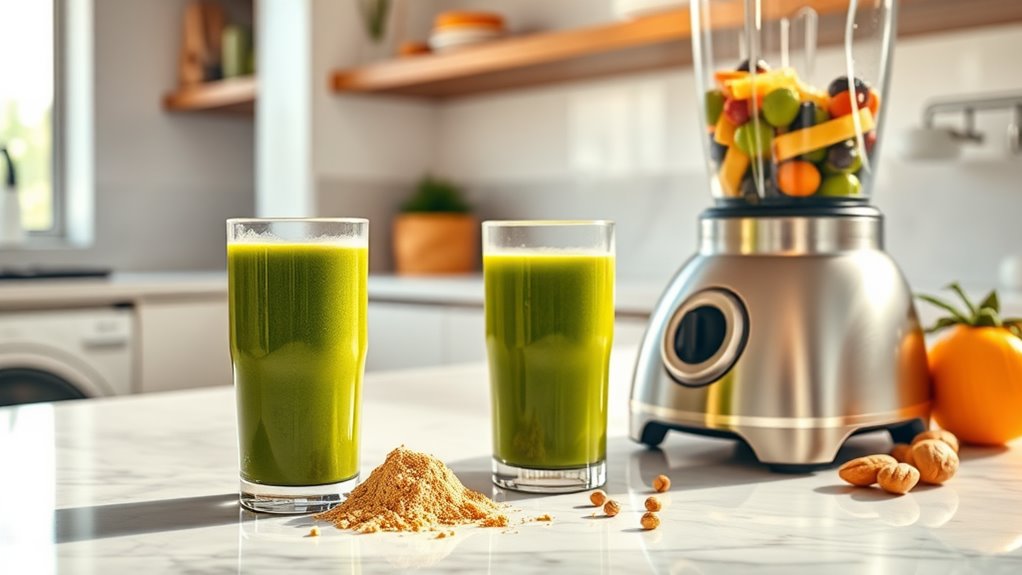Do You Really Need Protein Shakes. Read This First
You don’t necessarily need protein shakes to build muscle. A balanced diet rich in whole foods, like lean meats, beans, and dairy, typically meets your protein needs quite well. Many myths exist about the effectiveness of protein shakes, often misleading people into believing they’re essential. While they can be helpful in certain situations, whole foods offer additional nutrients that support overall health. Explore further to uncover more insights on optimizing your protein intake.
Understanding Protein Needs
How do you know if you’re getting enough protein in your diet? Many people fall for the protein myth, believing they need excessive amounts. In reality, your protein requirements depend on factors like age, activity level, and goals. Aim for a balanced intake, focusing on whole foods like lean meats, beans, and dairy. Monitoring your intake will help ensure you’re meeting your needs effectively. Keeping a food diary can enhance your awareness of dietary habits and help you track your protein consumption over time.
Common Myths About Protein Shakes
Here are some common myths:
- Protein shakes are necessary for everyone to build muscle.
- All protein shakes are equal in quality and effectiveness.
- Consuming excess protein always leads to weight loss.
Understanding these misconceptions helps you make informed choices about integrating protein shakes into your routine. Additionally, it’s important to remember that a well-balanced diet rich in whole foods generally meets nutritional needs without the reliance on supplements.
Dietary Sources of Protein
When it comes to meeting your protein needs, a variety of dietary sources can efficiently support your goals. Consuming both animal and plant-based proteins ensures you’re getting essential amino acids. Here’s an overview of some effective sources:
| Animal Sources | Plant Sources |
|---|---|
| Chicken breast | Lentils |
| Salmon | Quinoa |
| Eggs | Chickpeas |
| Greek yogurt | Tofu |
Protein Shakes vs. Whole Foods
What’s the best way to meet your protein needs: protein shakes or whole foods? While shakes are convenient, whole foods offer more benefits.
Consider these points:
-
Whole foods provide essential vitamins and minerals.
-
They promote better satiety and digestion.
-
Nutrients in whole foods work synergistically for optimal health.
Incorporating a variety of foods into your diet can help mitigate the risks of restrictive eating habits that often come with chasing perfection in nutrition.
Ultimately, balance both sources for comprehensive nutrition tailored to your lifestyle and goals.
When Protein Shakes May Be Beneficial
Protein shakes can be particularly beneficial for individuals with specific dietary needs or time constraints.
If you’re an athlete needing quick post-workout recovery or someone on a restricted diet struggling to meet protein requirements, shakes offer a convenient solution.
They can help you achieve your daily protein goals, especially when whole foods aren’t easily accessible or desirable.
Making Informed Choices About Protein Intake
How can you ensure you’re getting the right amount of protein for your individual needs? Start by assessing your activity level and health goals.
-
Calculate your daily protein requirements based on body weight.
-
Focus on whole food sources like lean meats, legumes, and dairy.
-
Consider consulting a nutritionist for personalized guidance.
-
A diet rich in whole food sources not only meets protein needs but also supports overall health and community values.
This balanced approach helps you make informed choices about your protein intake.



